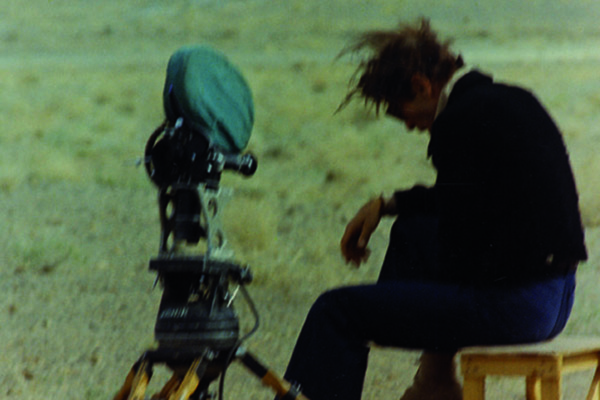Room 7
Proverbial rivers of ink have been spilled on Pasolini’s death, countless publications have been printed, and even comic strips have been drawn. It does not seem possible or interesting to lean towards one of the interpretations, to question ourselves, more than necessary, on the instigators or to embrace the theories of those who seem to have lost their senses with grief, so much so as to devote their lives to the hypothesis that it was Pasolini himself who planned his death. We have chosen not to lose the red thread of Pasolini’s pictorial and graphic activity, concluding with a large, indecipherable and obscure drawing. The subject, probably the steep profile of a bare hill, like those that appear in Pasolini’s films, in Porcile or Teorema, is repeated serially, with a few variations, in an ordered grid. The few possible comparisons make it difficult to date the work, which must be dated to the end of the 1960s, but the small sentence in the margin, “The world doesn’t want me anymore / and doesn’t know it”, seems to have been written on purpose to increase all the questions destined to remain unanswered. A similar sense of silence and drama is conveyed by the large photographic portrait captured during a break on the set of Il fiore delle mille e una notte (1973). This silence is broken by a contemporary counterpoint: Pasolini’s clear and strong voice expressing his concerns for the cities and people of his time. This is the second part of a short film produced by RAI, Pasolini e… la forma della città, directed by Paolo Brunatto in the autumn of 1973 and broadcast on 7 February 1974. Anna Zanoli, in her column Io e…, asks some intellectuals to talk about a work of art they love: Pasolini chooses to talk about the towns of Orte and Sabaudia, defending the need to preserve the integrity of the landscape but also denouncing the emergence of a new fascism destined to undermine man more than any political project has done so far. The last word is left to the host: A rischio della vita (At risk of life) is the memoir Giovanni Testori wrote shortly after Pasolini’s death in L’Espresso. It is the document of a total human identification, made possible by the profound consonance Testori had recently felt with Pasolini.




